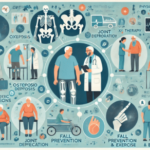Pancreatitis can seem mysterious and daunting. But with the right knowledge, it becomes easier to understand. A gastroenterologist moline can help clarify the causes, symptoms, and treatments of this condition. Pancreatitis happens when the pancreas becomes inflamed. This inflammation can cause pain and digestive issues. Let’s explore what you need to know about pancreatitis.
What is Pancreatitis?
The pancreas is a small organ with a big job. It helps digestion by releasing enzymes into the small intestine. When these enzymes activate before reaching the small intestine, they cause inflammation. This is known as pancreatitis. There are two main types: acute and chronic.
Types of Pancreatitis
- Acute Pancreatitis: This type occurs suddenly and is usually short-lived. It can cause severe abdominal pain. Sometimes, it even requires hospitalization. According to the National Institute of Diabetes and Digestive and Kidney Diseases, gallstones and heavy alcohol use are common causes.
- Chronic Pancreatitis: This type is persistent. It can lead to long-term damage to the pancreas. Chronic pancreatitis often stems from repeated episodes of acute pancreatitis. Alcohol abuse is a frequent cause.
Symptoms to Watch For
Knowing the symptoms helps with early detection. Here are key signs:
- Upper abdominal pain—often severe
- Nausea or vomiting
- Fever in acute cases
- Weight loss without trying
- Oily, foul-smelling stools in chronic cases
Causes and Risk Factors
Pancreatitis can result from various factors. Common causes include:
- Gallstones blocking pancreatic ducts
- Excessive alcohol consumption
- Genetic disorders of the pancreas
- Certain medications
Some risk factors are controllable, like alcohol use. Others, like family history, are not.
Diagnosis and Treatment
Doctors diagnose pancreatitis with blood tests and imaging. Blood tests check for elevated enzyme levels. Imaging helps identify the cause. Once diagnosed, treatment focuses on relieving symptoms and addressing the underlying cause.
| Feature | Acute Pancreatitis | Chronic Pancreatitis |
| Onset | Sudden | Gradual |
| Duration | Short-term | Long-term |
| Common Causes | Gallstones, alcohol | Repeated acute attacks, long-term alcohol use |
| Symptoms | Pain, nausea, fever | Pain, weight loss, oily stools |
Prevention Tips
Prevention focuses on lifestyle changes. Here are simple steps to lower risk:
- Limit alcohol consumption
- Maintain a healthy weight
- Follow a balanced diet
- Avoid smoking
These steps can help keep the pancreas healthy and reduce inflammation risk.
When to Seek Help
If you suspect pancreatitis, seek medical attention. Early treatment can prevent complications. A gastroenterologist is an expert in these conditions and can provide guidance.
Conclusion
Understanding pancreatitis is the first step to managing it. Recognizing symptoms, knowing causes, and taking preventive steps can make a difference. Trust in expert care for the best outcomes. The road to better pancreatic health starts with knowledge and action.


